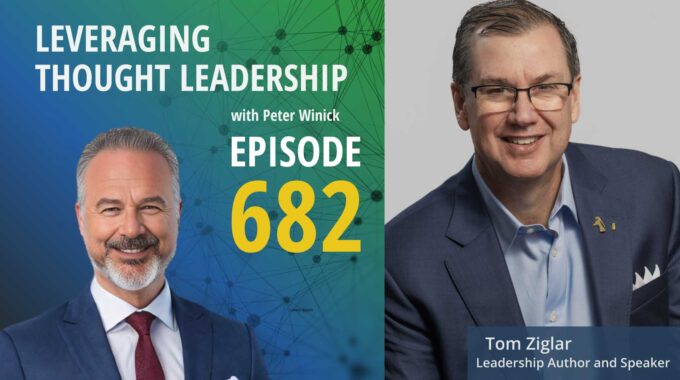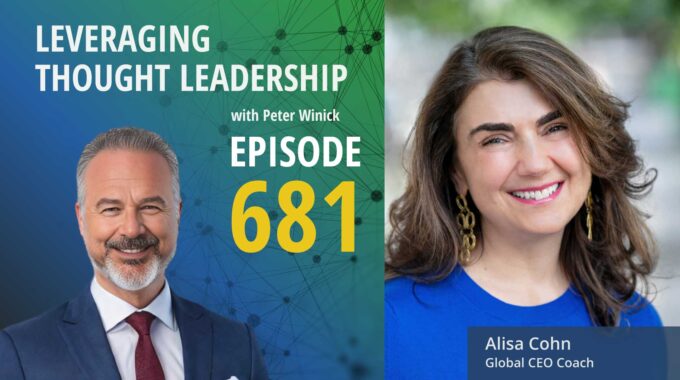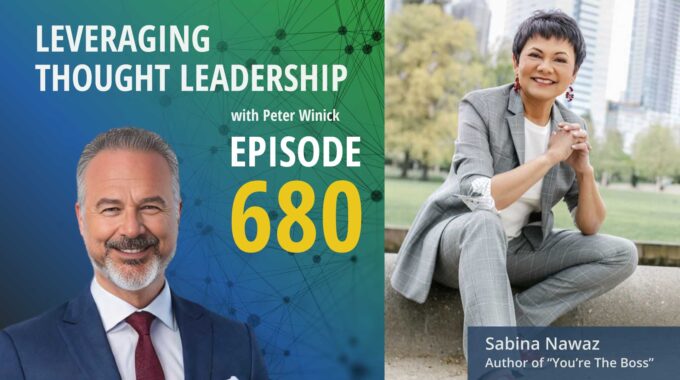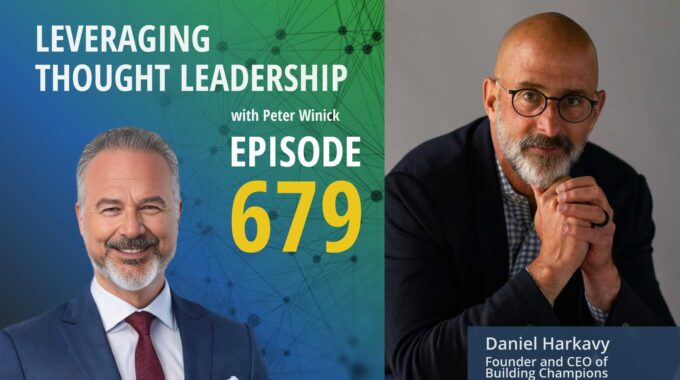How AI, Programs, and Trust Turn Ideas into a Life-Changing Business This episode explores how…
Instinctive Thought Leadership | Francis Cholle
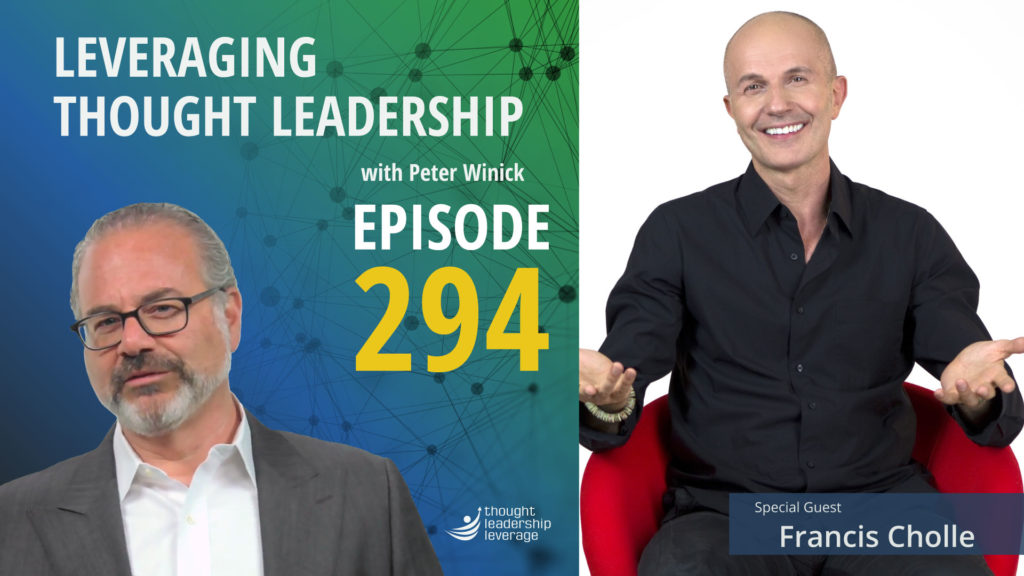
Using thought leadership to learn to relax and use your instincts more.
An interview with Francis Cholle about bringing instincts into the workplace through gamification and mindfulness.
Today’s guest is Francis Cholle, Founder and CEO of The Human Company, which designs, teaches, and implements unique ways to innovate and outperform competitors and achieve accelerated growth. Additionally, he is the Founder and CEO of the SQUIRCLE Academy and author of SQUIRCLE which is teaching a revolutionary method to make better, deeper, and more important decisions.
Francis shares how he is helping clients bring their instincts into business. He teaches them to change the way they look at and solve problems. His unique system of gamification that mirrors business allows people to relax and stop overthinking. Thus, he is giving better access to the instinctual part of our brain.
Having started his career in his 20s within publishing, Francis shares his unique view of being an author having experience on both sides of the table.
If you want to dig deeper into SQUIRCLE, you can discover your SQUIRCLE score by taking this self-assessment. Just text SQUIRCLE to 484848
Three Key Takeaways from the Interview
- Sometimes to solve unique problems your thought leadership will have to abandon the traditional and rely on your gut instincts.
- The gamification of your thought leadership can be a new way for clients to relax and learn your content in memorable ways.
- Thought Leadership needs to include concrete data but how you interpret it is what can make all the difference.
If you need a strategy to bring your thought leadership to market, Thought Leadership Leverage can assist you! Contact us for more information. We can help you implement book launches, marketing, research, sales and other aspects so you can devote yourself to what you do best.
Transcript
Peter Winick Welcome, welcome, welcome. Peter Winick I’m the founder and CEO of Thought Leadership Leverage, and you’re joining us on the podcast today, which is Leveraging Thought Leadership. Today, my guest is Francis Straw. He is, amongst other things, the author of Squircle, the CEO of Found and the founder of Squircle Academy and the founder and CEO of the Human Company. He’s currently based in L.A. thanks to our friend Covid, but typically would be based in multiple places. So thanks for joining us today.
Francis Cholle Hello. Thank you very much, Peter, for having me here. And thank you to your listeners as well.
Peter Winick Great. Thank you so much. So let’s start by I’m sure that if we were to have bumped into one another 20, 25 years ago on a plane or something, and I said to you, where are you going to be in 20, 25 years, you probably would not have necessarily described how it has played out. Right. So how did how did this happen? Right. Which is the universal answer. But we heard just now, okay, so how did it play out?
Francis Cholle Very quickly at a at a very young age in my mid-twenties, I had a very successful four career years as a book publisher in Paris. So I had two jobs. One was to manage the business and the other one was to study learning how to become a publisher, working with authors. And it was really thrilling at that age. And that was trading the world and doing great things and doing very well. And the company went super well. And then I took a break to come to New York for a year, a sabbatical to go to an acting school to just like completely disrupt the way I was.
Peter Winick Most people aren’t taking sabbaticals in their 20s, right?
Francis Cholle Well, I mean, I did because I work very, very hard. I felt like I was borderline burnout. And it is something, you know, in friends, the pressure to get into college and the Ivy League. Right. So it kind of you know, takes away your teenage and pushchair thing anyway. So and then from there I immediately went into business and very big responsibilities are very young age and intellectual, social, professional and economic responsibilities anyway. So I felt I needed to develop another part of who I was, which was, you know, the more emotional, the more physical. And I went to this Strasberg in New York. Then I joined the chorus, that class, I really wanted to become DeNiro or, you know, Right. And I didn’t want to. I just wants to become myself, really. Bottom line. Okay, so the singing class, this is where my, my, my heart was. Boom, boom, you know, because I had already sang in choirs singing. And I told myself, if I stop the amazing work I have today publishing our books, it will be to sing opera. And then here I am with money on my bank account. So I was young, I was 28, so I went down that path of studying opera. So that was my life for a bit of time. I did lots of these things as I was setting up my New York sure, eight years of my life in parallel. I did for the former CEO of L’Oreal and assignments on home and creative people. So fast forward, I developed a whole program for them globally. He then said, a big question I have on my mind, which is how come we’re able to go to the moon? Very sophisticated intellectual mind and unable to live in harmony with nature. And I could feel that it was going to be like a very, very big deal to swallow one day. If we do not change behaviors. And that was like really on me. And there was pudding and I had no answer. But when I worked on the management of creative people, I realized that’s when I design intuitive intelligence, the way of making instinctive reason work together. And I thought, okay, well, here is the answer. The reason why we’re not sustainable is because instinct, nature in us comes second in the way we make decisions. And I think if I’m able to prove that in business, it can help people innovate and make money, create value by bringing instinct in the way you look at problems and the way you make decisions, then I will have an argument to say, Look, here is a path forward to rebalance our models of prosperity.
Peter Winick So I want to stay there. So it’s interesting because a L’Oreal would be the perfect company to be open to that way of thinking. Right? Because you need the analytics. You need the chemical engineer, right? You need all the science. But the science in that environment is sort of under the radar line. What gets exposed, what’s about the brand is the creativity and the beauty and all those other things. I’m wondering in your work now, you’ve worked with opposite companies where, you know, there might not be producing things that are, you know, beautiful or whatever. They’re more technically based companies that you’re still preaching the same methodologies, frameworks and philosophies. So can you give me an example of that, because you didn’t stay in those co-created the creative industries?
Francis Cholle No, no, no. I’ve done it in finance. I’ve done it in pharmaceuticals. So it’s interesting. You know, every case is different, honestly. Sure. So, for instance, this privately owned bank. Had a leader has a leader that really wants to change the world with sustainable finance and, you know, respond. So they’re open. And, you know, I encountered resistance from them. But I take people through an experience. I don’t teach anything. I take people through a game that mirrors business. People understand that they need to shift gears.
Peter Winick But let me pause you on that right there. So when I when I went through the book, I loved the book. By the way, the book really tells the story of sort of a workshop experience. Right? So it parallels what that’s like. And, you know, there are some groups and we’ve all sort of had this experience pre-COVID when we’re you’re doing in-person events where, you know, the facilitator opens up with we’re going to do a little bit of an activity or a game. And there’s one group that goes either, you know, and then there’s another group that starts to stare at their shoes, God, please, please, please. I don’t want this. I’m here for work. This isn’t a game thing. But there’s something about and what’s happened is I think the learning community, primarily in large organizations, has embraced gamification. Yes, right. Because if you tell people, you know, Frances, get into learning mode, like get into a remote so your brain could receive information, you’re going to stiffen up and whatever. But if you look at let’s have a game. Games are fun, right? Game, sort of. So, Right. So, so tell me about the gamification piece, because I think it’s further validation of a phenomena that we’ve seen over the last 70 years.
Francis Cholle Sure. You know, so from Lego to of course, online games and you know, I refer I don’t know if I refer to this book, but there’s a even scientists who resorted to resorting to games to actually break through on things I’ve been working on for ten years with the greatest minds in medicine, billions of dollars. And through a game called Foldit, they were able actually to crack open some things that they had never been able to crack open. And they were not involving scientists. They were involving lay people.
Peter Winick To solve technical scientific problems.
Francis Cholle Those weeks, 2 or 3 weeks where they had not been able to solve in ten years. Yeah. Why? Why? Because play is actually connecting us directly to that deeper intelligence. You know, we’re less in our mind, we’re less logical, we’re much more adventure driven. We have, you know, and then we relax into just being and then that being you encounter the deeper strata of the brain where instinct lives. And instinct has carried our species through hundreds of thousands of years or tens of thousands of years to still be here through disruption. So it’s our best adaptation and our best instrument for creativity. And there you go. So play connects to directly to that part of you and brings out the genius of instinct and doesn’t deny the logical mind at all, you know, enriches it was the opposite is not true. If you start with a logical mind, then you in the square what’s right, what’s true, what’s not, what’s taller, what’s shorter. And in that evaluation, you you put on black and white glasses, you look at the wall in black and white and you miss out on all the colors. Sure is. And that’s where you’ve excluded instinct, which is in a world of nuances and perceptions. Okay.
Peter Winick Well, and very few decisions today. So one of the things that’s interesting today is the lines between functions and organizations have blurred. So I think it was an article I read in 2018 in Harvard Business Review that said that for the first time in history, the marketing groups were spending more money on technology than the technology group. So think about that for a moment. Take a deep breath there. Right. So if you were a CFO or a seagoing those marketing people, those crazy creatives that can do the amazing ads and the experiences and all that, they’re signing off on tens of billions of dollars worth of technology spend. How is that? Why is that? Well, most marketing, it has a technology component. So as a result of that, what many organizations have made standard operating procedures. All right, marketing folks, you need to do what you need to do, but you can’t go there alone. So if you’re going to make a marketing buy that has a technology element to it, by the way, that’s 95% of them, you need to have a technology partner. You’ll convey to that person what it is you’re trying to achieve. That person will be your translator so you know what you’re doing and all that sort of stuff. And I think in more and more places, you know, where exactly is that line between customer service and customer experience, between customer service and graphical user interface. So it’s we’re not living in that, you know, to your point, the square world anymore. You know, if you look at Amazon, the beauty of Amazon is, I mean the technology, I couldn’t even explain 1% of it. The beauty is I don’t need it.
Francis Cholle Well, that was the whole premise of a Steve job with Apple. You know, like, yes, it gets seamless for the user, you know, more than seamless, seamless and beautiful and playful and engaging. And they became the biggest organization, the biggest capitalization. You know, like it’s.
Peter Winick Well, it’s interesting that you mentioned Apple because they just recently launched the new their M1, their proprietary chip. And normally when you talk about. Apple. It’s. It’s bigger, it’s sexier. The visuals are better, the camera is better, whatever. But all the buzz on the new MacBook Air and everything using the M1 is really, for the first time in a long time, focusing on the power of the technology which Apple has never won the race by having the fastest CPU’s and all this other stuff. But because it’s a vertically integrated experience. Right? It’s interesting that they’re talking about the technology because it’s driving the things that you need to do.
Francis Cholle This stuff that’s critical, this integrating of the both. You know, one should not oppose the other, you know, but try out but just on this to just to make the point you know if they are started with technology, pure technology performance, serving productivity, they would never create a cult. You know. Right. Right. To be productive. But that doesn’t create appetite, doesn’t create a Chia that doesn’t create engagement. You know, the cult they’ve been created, they have created because they really understood nature of human beings will respond seriously.
Peter Winick People don’t put people don’t put Micron logo stickers on their knapsacks, right?
Francis Cholle No, not at all. You respond to that, right? They respond to play. So, you know, in this job was absolutely visionary. You really understood human beings. You know.
Peter Winick If you’re enjoying this episode of Leveraging Thought Leadership, please make sure to subscribe. If you’d like to help spread the word about our podcasts, please leave us a review and share it with your friends. We’re available on Apple podcast and on all major listening apps as well as at Thought Leadership Leverage.com/podcasts.
Peter Winick Yep. So let me ask you this. So I want to sort of take it from one part of your career to another. So years ago in in Europe, France, you’re on the publishing side of the house. And someone that has been on the business side of publishing should know better than to be an author. But, but in spite of that, you chose to go down that path. So tell me why and how. And what was it about? Getting a book out into the marketplace that was important for you and what you learned from that process?
Francis Cholle Well, because I thought, you know, I had to. Okay. First of all, I wrote in France my first book, my first book. And really, I was living in New York, but I published in France because that was an easier market for me, which for me and so and so forth. And I felt like I had, you know, you have to put your ideas on paper. It’s important, you know, and it’s great to write an article, but there are so many things published online. But when it’s a book, it’s different. There’s a there’s an element of respect. There’s an element of eternity behind a book. You know, that’s not the same legacy.
Peter Winick Yeah.
Francis Cholle Yeah, exactly. So I felt like it was important to establish, first of all, for myself to go through the exercise of writing.
Peter Winick And so let me let me pause you there. So a lot of people, when I speak to them about why they’re very external focused, it gives me credentials. It’s something I give to clients, whatever. But I think one of the critical issues and you just sort of touched on it, is it forces you just to get concise and tight. And you only have, you know, whatever it is, what to put in there. And it forces you to codify and clarify your methodology and thinking. Because I would imagine, you know, you could have written a thousand pages that nobody would have read that book.
Francis Cholle But if it’s anybody could still rebellious is still like a mega ship to maneuver with you know, from the sure to the last page and keep the interest and the consistency and the development of the idea and landing somewhere, though it’s not easy at all. And then and then the other thing is the commitment. You know, you behind your words. You know, you are you know, there’s an element of that. And thirdly, if you are challenging the status quo, which I was hoping I was, you know, by saying, look, you know, if you negate intuition as something that’s just for fun and not something reliable, you’re leaving out the better part of who you are. You know, this is the vehicle that gets you to what it means to be human, what it means to feel and perceive, which is the part that computers have a hard time to reproduce, you know, emotions and sensitivity and holistic thinking, you know, and.
Peter Winick Right. They take the cake. The cavemen didn’t have committees and PowerPoints to decide which way to go to hunt the bison.
Francis Cholle Exactly. And then we’re back to the cavemen in the sense of, you know, everything’s unpredictable. And Covid has told us that we don’t master anything and control anything. And I just heard today that in London they found out that Covid has evolved into a new strand.
Peter Winick Right.
Francis Cholle So, you know, it’s so but the thing is, giving up the idea that we’re in control is not giving up anything but an illusion. And it opens to a world of possibilities. That’s what the game Squircle game demonstrate.
Peter Winick So let me ask you this then. There’s sort of two sides to this. There’s the creatives that have to embrace the logical, not always an easy thing to do because you have those. I just know I feel whatever, you know. And then you have to have the logical that need to embrace the intuition of the creative which is which is harder.
Francis Cholle I will not answer your question or I will answer it with another angle. Imagine two doors. There’s a regular door that’s a rectangle we used to go over and there’s another door that’s kind of an amoeba wound and it’s evolving and it’s not set and everything. So of course, the rector, the rectangular door, if you walk through it, feels much better because it’s not going to move. It’s fixed. And you know what it is? You walk through thousands of doors. You know what?
Peter Winick It’s safe, it’s comfortable, it’s secure and works.
Francis Cholle And then the other one, the amoeba, you know, that’s kind of moving and evolving. Right. Okay. But if you enter the door, the rectangular door, you’ve excluded anything organic. If you entered through the other door, the organic door, you can still bring the logic. So there’s a hierarchy that we don’t understand in this modern world. We will leave that if we enter through the rectangular door, we come with a set of rules that are dependable and will make us smarter. It will make us smarter in a sense.
Peter Winick So I get that. So how do you. It just seems like today, between machine learning and artificial intelligence and big data and whatever, that people can come to the meeting, whether it’s to the board or wherever and, you know, stacks and stacks and stacks of data, you know, Amazon knows that. I read my Kindle for a minute and 22 seconds this morning and what doing. They know everything, right. And they’re making decisions giving you a false sense of security based on all this data. And I think there’s an advantage that people using that have it might be a fallacy, but at least a perception of, Peter chooses to go down that door because blah, blah, blah. And the intuition people ultimately you have to say, Well, trust me.
Francis Cholle I know that I love data. I love data. You know, when I was at the helm of this publishing house, the cash flow was very important to sales. But I had all the data on my desk every day, cash flow, every day, projections, everything. And I love data because it gives you a geography of reality that you don’t see otherwise, you know, it’s a specific lens. And that to me, it has a lot of creativity. It gives me images and proportions that I draw immediate conclusions and or think about so thoroughly. So I’m not discounting data the least data is important. It is an amazing opportunity. And.
Peter Winick Yet again.
Francis Cholle The one genius part of data is the interpretation that you make of it and your ability to think creatively about it. That’s what makes a difference.
Peter Winick So that’s the magic, right? Because a lot of data people are missing that and they just say, Here’s what the data says, and then the meaning goes, Yeah, but what do you say? What, what, how do you take it from a spreadsheet to a three dimensional. And that’s probably the missing link leadership skill today. So tell me a little bit about Squircle Academy in the human company. Sure. Which is obviously born of your thinking. Right? And it’s the way to scale and leverage it that you’ve got. So what is that about?
Francis Cholle The human company is really for the C-suite. You know, we’re advising research advisors to two leaders and they’re and they’re in executive committees or yeah and I believe the human company to show people, you know organizations of humans for humans and humans are complex and unpredictable, but there’s a way to engage them, etc.. So that’s been the whole work we’ve done. And then and then I developed into companies for that really evaluating strategy and versus decision making. And now we like telling me what we’ve done. We’ve simplified the model so that everybody and the organization in definition can on board this same mindset and attitude that allows people to be more than data readers. They are interpreters, acuity readers. They regain that creativity and agility that’s so essential. And that should not only be at the C-suite level, but throughout the entire organization.
Peter Winick So it’s the democratization of the content production capability. So I love that because a lot of the work that we do with our clients, our clients are brilliant. They can go head to head with a CEO and all that sort of other stuff and say, Wow, great. But that’s sort of limiting because that that CEO or the leader or whatever is only going to bring you in for a big hairy problem when it’s high stakes and really expensive. But the ability to democratize the content and convert it into capabilities to be developed at scale, it seems to me that that was sort of the logic behind Squircle Academy.
Francis Cholle Correct. And you know, Peter, earlier, I should.
Peter Winick Say the intuition behind Squircle.
Francis Cholle If you got it. And no, the thing is, most of my clients, you know, they’re high strategic thinker.
Peter Winick Young.
Francis Cholle You know, etc., but they also all entertain a relationship with their intuition, I can tell you that much. Okay. Okay. That got the good feelings and everything, of course, would have to be quick, fast, you know, and also based on experience, a wealth of experience. So they have this very interesting combo between rational experience and intuition. But then when they come into the room with their teams, then the culture changes because, you know, to operationalize into intuition. And that’s what I’ve done. I’ve operationalize intuition into intuitive intelligence and then the intuitive compass and yes. Merkel And we bring that into how you communicate with the team, how you collaborate, and you understand that you have a natural born adapter in you, and so you’re.
Peter Winick Weaving it into the functions and the fiber of the organization. But that’s the other piece is when you do these sort of. Out there, things, if you will, as a standalone, not integrated. What? Let’s go do the offsite. Yeah. You know, three days later it’s gone. It’s. It’s like watching a movie or a play or something. Yeah.
Francis Cholle And same with mindfulness. Okay, great. Yeah. But then I go back to the stressful meeting room, so. Right, Right. What we say is Squircle operationalizing mindfulness. It brings that mindful mindset to everything you do and it delivered outcomes that you can measure.
Peter Winick I love it. Well, this has been fantastic. I appreciate your time. We’re going to put an offer that you made into the show notes so people can take the assessment. And I think thank you so much for sharing your time with us today.
Francis Cholle Peter. Thank you very much. Okay. All the very best to you and to your listeners. A pleasure to be here. Thank you.
Peter Winick To learn more about Thought Leadership Leverage, please visit our website at ThoughtLeadershipLeverage.com. To reach me directly. Feel free to email me at Peter at ThoughtLeadershipLeverage.com. And please subscribe to Leveraging Thought Leadership on iTunes or your favorite podcast app to get your weekly episode automatically.


